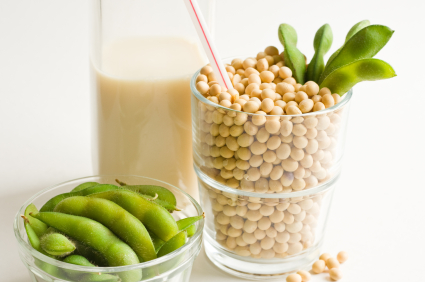For people who watch what they eat, soy can be a staple in their diets because it is versatile, inexpensive and contains valuable nutrients. While the question of soy safety before, during and after pregnancy is relatively new, according to an article posted by Mayo Clinic, it is generally safe.
In fact, much of the research is based on consumption of high levels of soy. In moderation, soy has been found to have no effect on infant growth, reproductive ability or puberty, the Mayo Clinic reports. In laboratory tests, high soy diets have contributed to a slight increase in a birth defect in male animals, where the urethral opening was too small. A study published in a 1998 issue of the journal Natural Toxins found a link between high levels of soy and negative effects on fertility. For pregnant women consuming soy in moderation, risks are slim to none.

Soy’s advantages
This wholly plant-based protein offers great benefits. Soy foods have fewer calories and low saturated fat. Soy is packed with calcium, folate, iron, zinc and other minerals. For vegans who do not eat animal products, eating soy products is the only way to get vitamin B12 ““ which is found only in animal products and soy.
Soy’s dark side
Soy has phytoestrogen, which is plant-based estrogen that can act like hormones in your body. Some of these phytoestrogens may attach to the hormone receptors in a woman’s body and block the effects of certain hormones, like estrogen and progesterone ““ two essential hormones during pregnancy. Don’t be alarmed: During pregnancy, your body has a high amount of estrogen, so it’s unlikely that soy products will have a significant affect on your hormone levels.